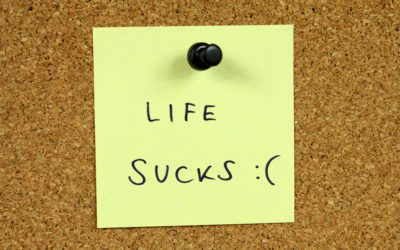During one of the early sessions in our Falling in Love With Your Business program, one of the participants talked about how much they hated marketing. My co-teacher, Dr. George Pransky, responded by saying “You must have a pretty unlovable definition of marketing then. In fact, I bet anyone would hate marketing if they thought about it the way you do.”
I followed up by sharing the following quote from Al Smith, Governor of the state of New York during the prohibition era in the 1920’s:
But if by alcohol you mean that spirit of fellowship; that oil of conversation which adds lilt to the lips and music to the mouth; that liquid warmth which gladdens the soul and cheers the heart; that benefit whose tax revenue has contributed countless millions into public treasuries to educate our children, to care for the blind, and treat our needy elder citizens—then with all the resources of my mind and body I favor it.”
And that perhaps raises the most important question of all in considering the link between love and productivity. Even once you can see that loving what you do not only increases job satisfaction but also boosts performance and productivity, the next question on the table is whether or not you can learn to love anything. In other words:
Is love a choice?
If you answered yes to the question, here’s a second question that might get you to question that answer:
Is there anything you do in your life that you don’t love doing?
If love is a choice, why would you ever choose not to love something if you’re going to be doing it anyways?
Go ahead, choose to love everything you do – I’ll wait here. (Hums Jeopardy theme music in head….) Done? Great.
Now on the off chance that didn’t completely work, let’s take a minute to look at its opposite. Have you ever changed your mind about someone or something? Maybe you thought it was going to be hard and then decided it could be easy? Or you were going to stay mad at someone forever but then at some point you chose to let it go?
Wasn’t that a choice, if not to love, to stop actively not loving?
So where does that leave us?
If love is only kind of sometimes sort of a choice, and we want to love doing something we don’t enjoy or even hate, how do we do it?
In order to better understand our role in loving what we do, I’d like to suggest the analogy of rolling down a hill. As kids, we used to climb to the top of a grassy incline at the nearest park and roll ourselves down it with wild abandon. The fact that there was a pond at the base of the incline made it all the more fun, as there was always the chance that you wouldn’t be able to stop by the time you got to the bottom.
Similarly when there’s something that’s not exactly up to you but it’s also not not up to you, you may need to push yourself a bit at the top to get things rolling, but once you get going it’s harder to stop than to continue, and getting to the bottom is pretty much inevitable.
So here are three “pushes” – three things that get the ball rolling in the direction of love and make it pretty much inevitable that you’ll wind up loving what you do:
1. Desire and Intention
I think of “desire” as wanting to go in a certain direction and “intention” as aiming the mind in the direction you want to go. Think of a bow and arrow. If you want to hit the target, you aim towards the target with the intention of hitting it. It’s not up to you where the arrow lands, but the direction you aim it in is the starting point in determining the result.
If you genuinely want and intend to love something, that focuses the vast resources of the incredible creative potential of the mind on it. You start noticing things that make it more loveable. You’re more inclined to ignore aspects of it that you previously obsessed over.
Desire and intention don’t make you fall in love – it just makes it exponentially more likely that you will.
2. Possiblility
In my not yet released new book, Creating the Impossible, I write extensively about how we confuse the ever-shifting edges of our current thinking with valid data about the nature of the universe. So if we can’t imagine how something could happen, we place it in the “impossible” category and never truly aim our minds in that direction again.
When it comes to falling in love with anything you do, simply recognizing that it’s possible opens us back up to the unknown and the not yet occurred. Things move into the “possibility” part of our mind, and we’re more willing to be surprised and delighted and less needy to be proved right. If intention is what gets us on target, possibility is what gets us in the game.
3. Thought Recognition
When we recognize something as being 100% made up of thought and not an accurate description of a fixed reality, we kind of know we don’t have to worry about it. Thought by its very nature is fluid and changeable, and what looks one way in one minute can easily look a completely different way in the next.
But when something looks like it’s made of “reality”, or even “Thought + Reality”, then it’s not such a safe bet that it’s ever going to change.
So if I look out the window and see the nearest tree, I kind of know that tree will be there every time I look. But if I look out the window and see the mythical tree goddess Lauma, I kind of know she won’t be there the next time I look.
In order for me to not like something (or even hate it), I have to think about it in an unfavorable way. Otherwise it just is what it is. So in order to dislike anything, that dislike has to be grounded in/made up of thought. Since I don’t have to think anything, I can let go of those thoughts and open up to new possibility.
The moment I recognize my dislike of some tasks over others as being learned and arbitrary (as opposed to being the nature of the task or part of my genetic make-up), my intention to fall in love with it will literally cause me to begin seeing it differently. My sense of possibility will keep me going past those moments when I still find myself getting frustrated or bored with things along the way. And my level of thought recognition will allow me to more easily dismiss habitual thoughts of dislike that may arise along the way.
Here are some questions that will assist you in putting these ideas to work in your own work and world:
1. What’s something you don’t like (or even hate) doing but you know needs to be done anyways?
2. Can you see that if you loved it you’d approach it differently than you do now? Would that different approach make you more productive, effective, and/or efficient?
3. What’s your current definition of the thing you don’t like? Can you see that definition (by definition) must be made of thought?
4. If intention mattered, would you aim yours towards falling in love (or at least learning to love) with this thing?
5. Have you ever heard of anyone loving the thing you dislike? Have you ever had moments where you disliked it more or less than you do now? What do you make of that?
6. Does your dislike of that thing seem learned and arbitrary or “built-in to the system”?
In some ways, this last question is the critical one. Because the second we begin to recognize that love is the default in the human system, it means that anything we don’t feel love or at least compassion for must be a creation of our own mind. And the wonderful thing about minds is that they’re made to change for the better…
What do you see for yourself about this?
With all my love,
![]()










